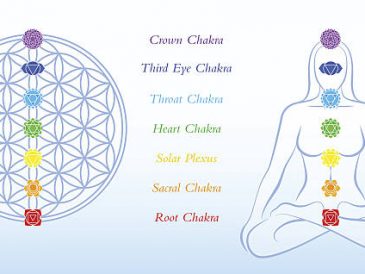In today’s multicultural and diverse world, practices from various spiritual traditions often intersect and blend. One such practice that has gained immense popularity globally is yoga. Originating in ancient India, yoga has evolved into a holistic system that integrates physical postures, breathing techniques, meditation, and philosophical principles. However, as yoga has spread to different cultures and religions, questions arise about its compatibility with various belief systems, including Christianity.
For many Christians, yoga presents a dilemma. On one hand, they recognize its physical and mental health benefits, such as improved flexibility, stress reduction, and enhanced well-being. On the other hand, they may feel conflicted about participating in a practice with roots in a non-Christian tradition.
The debate over whether yoga can be Christian centers around two main perspectives: those who see yoga solely as a secular exercise and those who believe it inherently conflicts with Christian beliefs. Let’s delve into both perspectives to understand the nuances of this complex issue.
From a secular viewpoint, yoga is often regarded simply as a form of exercise and mindfulness practice, divorced from its religious origins. In this interpretation, practitioners focus solely on physical postures (asanas) and breathing techniques (pranayama) as tools for improving health and reducing stress. The spiritual aspects of yoga, such as chanting, meditation, and philosophical teachings, are seen as optional or irrelevant to the practice.
For Christians who adopt this perspective, practicing yoga does not necessarily conflict with their faith. They view yoga as akin to any other form of exercise or relaxation technique, such as jogging or meditation. They may even find parallels between certain yoga concepts, such as mindfulness and self-awareness, and Christian virtues, like mindfulness of God’s presence and self-reflection in prayer.
Furthermore, some Christian practitioners adapt yoga to align with their faith by incorporating Christian prayers, Scripture readings, or intentions into their practice. This approach, often referred to as “Christian yoga” or “holy yoga,” aims to combine the physical benefits of yoga with Christian spirituality, providing a framework for individuals to connect with God through movement and meditation.
However, not all Christians embrace yoga in this way. Critics argue that yoga’s spiritual roots in Hinduism and other Eastern religions are fundamentally incompatible with Christian beliefs. They contend that yoga’s emphasis on achieving inner peace and enlightenment through self-realization contradicts the Christian belief in salvation through faith in Jesus Christ.
Moreover, some Christians are concerned about the potential for spiritual deception or idolatry inherent in yoga practices. They caution against participating in activities that may open the door to spiritual influences contrary to Christian teachings. For these individuals, practicing yoga—even in a secular context—raises theological and ethical concerns that cannot be easily dismissed.
To address these concerns, some Christian leaders and theologians advocate for discernment and critical engagement with yoga. They encourage Christians to carefully evaluate the spiritual implications of any practice they engage in and to prioritize their relationship with God above all else. This approach emphasizes the importance of prayer, biblical study, and seeking guidance from trusted spiritual mentors when navigating issues related to faith and practice.
Additionally, proponents of Christian yoga emphasize the importance of intentionality and mindfulness in shaping one’s practice. They argue that by anchoring yoga in Christian principles and intentions, practitioners can guard against spiritual syncretism and ensure that their practice aligns with their faith.
Ultimately, whether yoga can be Christian is a deeply personal and nuanced question that each individual must grapple with in light of their own beliefs and convictions. While some Christians may find value in practicing yoga as a means of physical and mental well-being, others may feel called to abstain from it due to theological or spiritual concerns.
As the conversation surrounding yoga and Christianity continues to evolve, Christians need to approach the topic with humility, openness, and a commitment to discernment. By engaging in thoughtful dialogue and seeking guidance from Scripture and the Holy Spirit, Christians can navigate the intersection of yoga and faith with wisdom and integrity. Whether one chooses to practice yoga or not, what ultimately matters is the sincerity of one’s devotion to God and the pursuit of spiritual growth in accordance with His will.




